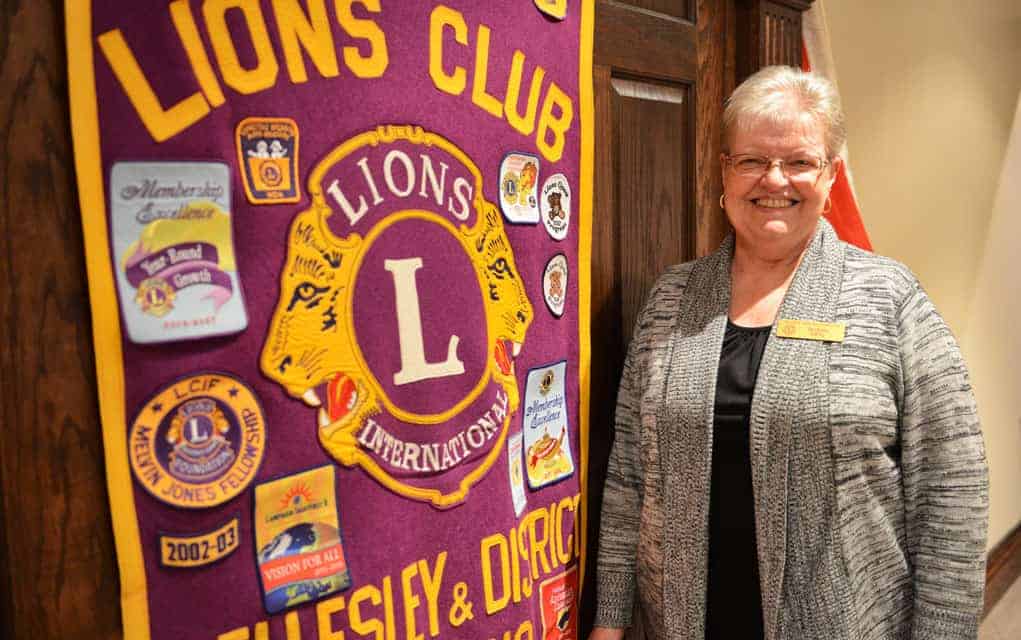A walking school bus program, piloted at Wellesley PS last year, will expand to 30 schools in Waterloo Region thanks to a financial boost to the Canadian Cancer Society (CCS) from the Ontario Trillium Foundation.
Launched last year in Wellesley as The Trottibus, the walking school bus is, as the name hints, an organized system that does on foot what a school bus does in shuttling kids home safely as a group along their route.
“Volunteers, parents or other adults lead the walking school bus and it works just like a traditional school bus,” explained Leslie Maxwell, school travel planner with student transportation services of Waterloo Region. “Parents would register their kids and say, ‘Yes I want their ‘school bus’ to pick them up’ and they would be assigned a given time at a given stop, be picked up and walked to school the rest of the way.”
The successful pilot outing of the program and the resultant increased physical activity levels among children prompted the foundation to provide funding totalling $246,800 over three years.
“The pilot had been very successful and so we were looking for resources to scale the program up to more schools in the region,” explained Susan Flynn, senior manager of cancer prevention in Ontario with the Canadian Cancer Society.
Grants through the foundation are intended to help organizations expand an existing, proven, not-for-profit project. Local partners who helped to make the pilot feasible and workable include Waterloo Region Student Transportation Services, the school boards, the Waterloo Region Block Parent program, and the Region of Waterloo Public Health’s active and safe routes to school program.
“We also fitted under the stream of keeping Ontarians active, so a walking school bus is a great way to get young children and their families out walking in their communities, rather than taking their car. We know that healthy patterns that are established early in life are more likely to be carried on as the child grows older,” Flynn added.
As Maxwell explained, the list of benefits for the walking program exceeds just physical activity.
“The walking school bus can make the walk to school more feasible for some families who struggle with scheduling or who have more than one child attending different schools,” said Maxwell. “This project has a real chance of reducing the number of parents who may have been driving their children to school and can make a positive environmental impact as well as supporting greater child health and better focus in the classroom.”
The grant will be implemented over the next three years, where schools who are interested in the program will be educated and aided in order to make the project successful and sustainable.
“We are planning to work with our local partners to set up a walking school bus program in 30 schools. We recognize setting up the program is one thing, building in mechanisms to make sure the program is sustained and becomes an ongoing activity of the school is something that requires a bit of time, which is why this is a three year project,” explained Flynn.
The CCS will work with schools to identify interest by promoting the program to the parents, recruiting them to be volunteers both to help around the program and be walk supervisors. They will also support the schools in identifying optimal walking routes. As well, there will be ongoing evaluations of the program to find opportunities for improvement.
Funding will officially begin flowing in February. However, they say they will be spending the months leading up to the next school year identifying schools that are interested, with an eye on starting in September.









